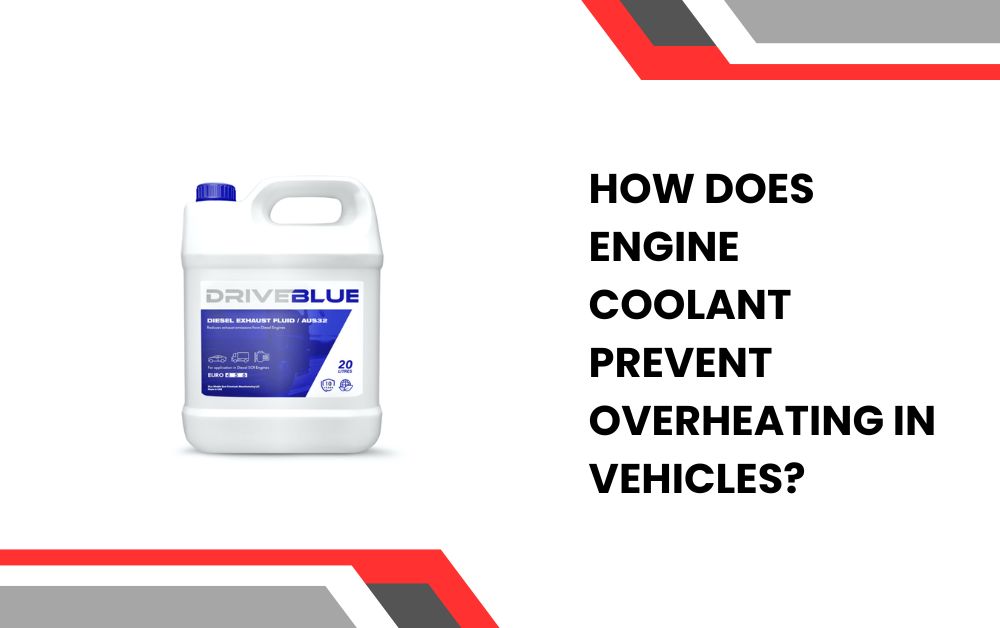How does engine coolant prevent overheating in vehicles?
Engine coolant plays a crucial role in maintaining optimal operating temperatures for vehicle engines. Without proper cooling, engines can overheat, leading to significant damage and potential breakdowns. This article explores the mechanisms of engine coolant and how it effectively prevents overheating in vehicles.
Understanding the Role of Engine Coolant
Engine coolant, often referred to as antifreeze, is a liquid substance that circulates through the engine and cooling system to regulate temperatures.
Note:- Are you looking for a reliable engine coolant manufacturer and supplier in Dubai? Contact DEF (Diesel Exhaust Fluid) today for high-quality engine coolant solutions. With a commitment to excellence and a reputation for reliability, DEF provides a range of coolant products to ensure your vehicle’s engine operates at optimal temperatures. Contact us now to discuss your coolant requirements and ensure your vehicle remains protected against overheating.
Composition of Engine Coolant
Most engine coolants are composed of a mixture of water and ethylene glycol or propylene glycol. These additives enhance the boiling and freezing points of water, making it suitable for a wide range of temperatures.
Example: Types of Coolant
There are different types of engine coolant, such as conventional green coolant, extended-life coolant (orange or red), and hybrid organic acid technology (HOAT) coolant. Each type offers specific benefits and is formulated for different engine requirements.
Heat Transfer Process
The primary function of engine coolant is to absorb heat generated by the combustion process and transfer it away from the engine.
Absorption of Heat
As coolant circulates through the engine, it absorbs heat from the engine components, including the cylinders, cylinder head, and engine block.
Example: Cooling System Components
The cooling system includes components such as the radiator, water pump, thermostat, and hoses. Together, these components ensure proper circulation and heat dissipation throughout the engine.
Regulation of Engine Temperature
Engine coolant helps regulate engine temperature within the optimal operating range, typically around 195 to 220 degrees Fahrenheit (90 to 105 degrees Celsius).
Thermostat Function
The thermostat regulates coolant flow based on engine temperature. When the engine is cold, the thermostat remains closed, directing coolant flow through the engine to warm it up quickly. Once the engine reaches operating temperature, the thermostat opens, allowing coolant to flow to the radiator for cooling.
Example: Cooling System Efficiency
Efficient cooling systems ensure that engines maintain stable temperatures under varying conditions, from idling in traffic to driving at high speeds. Proper coolant levels and circulation are essential for maintaining optimal engine performance.
Prevention of Corrosion and Rust

Engine coolant contains additives that prevent corrosion and rust formation within the cooling system.
Corrosion Protection
Additives such as corrosion inhibitors form a protective layer inside the engine and radiator, preventing metal components from corroding over time.
Example: Long-Term Engine Protection
Regular coolant flushes and replacements are essential to replenish corrosion inhibitors and maintain the cooling system‘s protective properties. This prolongs the lifespan of engine components and ensures reliable performance.
Freeze Protection
In addition to preventing overheating, engine coolant provides protection against freezing in cold weather conditions.
Antifreeze Properties
The glycol-based additives in coolant lower the freezing point of water, preventing the coolant from solidifying in freezing temperatures.
Example: Winter Driving Conditions
Properly mixed coolant with the correct antifreeze-to-water ratio ensures that the engine remains protected even during severe winter conditions. This prevents damage to engine components caused by freezing coolant.
Conclusion
Engine coolant is a critical component of the vehicle’s cooling system, essential for preventing engine overheating and maintaining optimal operating temperatures. By absorbing heat, regulating engine temperature, protecting against corrosion, and providing freeze protection, coolant ensures the longevity and reliability of vehicle engines. Regular maintenance, including coolant checks and replacements, is key to ensuring the cooling system operates efficiently and effectively under all driving conditions.
Note:- For more articles visit on allguestblog.






